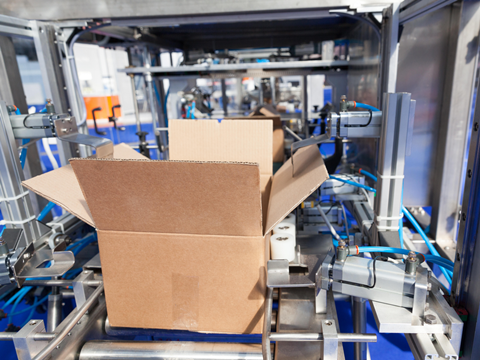
Sasol Chemicals has introduced SASOLWAX LC100, an industrial wax grade with a reported 35% carbon footprint reduction, designed for use in packaging adhesives and said to achieve cradle-to-gate Product Carbon Footprint (PCF) benefits.
The new SASOLWAX LC100 follows the recent introduction of SASOBIT LC, Sasol’s lower carbon solution for the asphalt industry. Both wax grades apparently offer drop-in alternatives to the benchmark grades, aiming to enable customers to reduce their Scope 3 greenhouse gas emissions without compromising on performance.
Sasol Chemicals says its model for calculating PCFs for its GTL FT wax value chain has undergone a critical third-party review and complies with ISO 14067, an international standard that outlines the requirements and guidelines for quantifying the carbon footprint of products throughout their life cycle.
The company adds that in the packaging and adhesives market, where Hot Melt Adhesives (HMA) are prevalent, its SASOLWAX LC100 grade provides the same properties and performance benefits as Sasol’s industry standard SASOLWAX H1. This includes enabling odourless, clear HMA formulations in combination with metallocene polymers, through low viscosity, high crystallinity and stability; thinner adhesive application, resulting in more box closures with less adhesive per closure; and enabling high-speed packaging lines due to fast set times. It is also said to provide improved durability and thermal stability, hoping to boost operational efficiency for HMA manufacturers.
“With a 35% reduction in carbon footprint without compromising on quality, our lower carbon product range allows customers to significantly improve their sustainability performance while meeting the highest industry standards,” said Dirk Uys, vice president of Sales at Sasol Chemicals. “We are committed to expanding this significant improvement in the PCF to more markets and applications, enabling customers across other industries to benefit from our sustainable solutions.”
Last month, Power Adhesives claimed to have developed the ‘world’s first’ fully-certified biodegradable, shaped hot melt adhesive with the aim of boosting the environmental credentials of its product portfolio. Made with 44% biobased materials, the adhesive is said to leave no microplastics or harmful products behind when it decomposes.
In the same month, Trinseo announced the launch of its acrylic waterborne adhesive LIGOS A 9200, designed for the dry lamination of flexible packaging structures that come into contact with food. The emulsion’s polymer design is said to result in high initial shear and bond strength, creating a ‘valuable solution’ for film converters.
If you liked this story, you might also enjoy:
How are the top brands progressing on packaging sustainability?
Sustainable Innovation Report 2024: Current trends and future priorities
Reuse vs. single use – which is better for the environment?
The ultimate guide to global plastic sustainability regulation














No comments yet